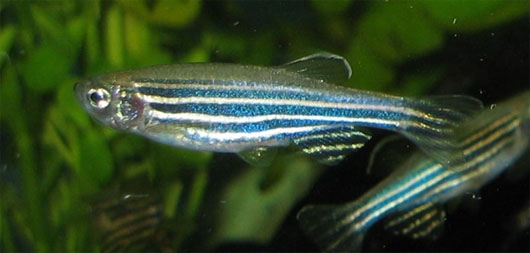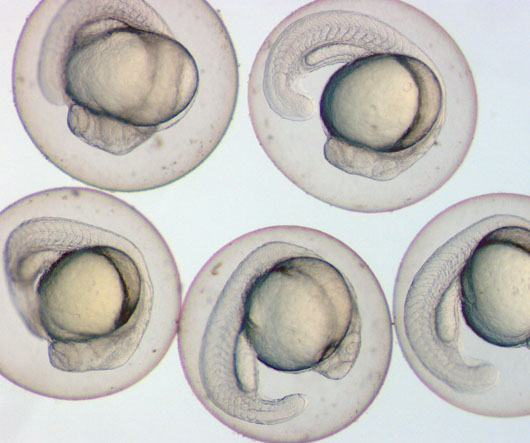A warm start to life means a good start, according to new research

A warm start in life can make fish better able to cope with high and low temperatures later in life, researchers at the University of St Andrews have discovered.
Work carried out by Professor Ian Johnston and Dr Graham Scott of the University suggests that growing up at warmer temperatures might help some aquatic animals cope with the more varied climates expected with climate change.
They found that raising zebrafish embryos at warmer temperatures, improved how well they could adjust to changes in temperature later in life. Such temperature changes mimicked the seasonal variation they would experience in the wild.
Zebrafish were selected as a model fish species which is widely used in fundamental biological and biomedical research.
When zebrafish embryos raised in warm water experienced temperature variation as adults, they could swim faster, had muscle better suited for aerobic exercise, and expressed – at higher levels – many of the genes that contribute to exercise performance.
The authors concluded that being exposed to challenging temperatures in early life might help some fish cope with warmer or more variable temperatures when they get older, which could help mitigate the adverse effects of global warming.
The research is published in the Proceedings of the National Academy of Sciences and was supported by an EU-FP7 grant “LIFECYCLE” and the “Marine Alliance for Science and Technology”, a pooling initiative of the Scottish Funding Council.
Professor Johnston said: “This research represents a paradigm shift in our understanding of the thermal biology of aquatic organisms.
“It shows how the temperature experienced at the earliest stages of development can have persistent effects on the physiology of adult stages.
“In order to predict the likely effects of future climate change these early developmental effects need to be taken in to account. Indeed, for some species warming at the embryo stage may improve the ability of adults to cope with seasonal temperature change”.

Photo credit: IA Johnston
Note to Editors
For images please contact the press office.
Professor Ian A Johnston FRSE, Director of the Scottish Oceans Institute, University of St Andrews, Scotland. [email protected] Tel: 44(0)1334 463440
Dr Graham Scott is now at McMaster University, Hamilton, Canada. [email protected] Tel: +1 905-525-9140 ext. 26692
The full article is available online.
Issued by the Press Office, University of St Andrews
Contact Fiona MacLeod on 01334 462108/ 0771 414 0559.
Ref: (warm 17/08/12)
View the University’s latest news at http://www.st-andrews.ac.uk/news/
Category Research